Katheryn Thompson's Blog, page 18
January 30, 2017
January in books
 The God of Small Things (Arundhati Roy, 1997)
The God of Small Things (Arundhati Roy, 1997)From the very first page, the reader is thrown headfirst into the lives of Ammu and her twins, Estha and Rahel, and the consequences of their rebelling against "the laws that lay down who should be loved, and how."
Four stars. It took me a while to get into this one, because Roy moves seamlessly between characters, places, and times, almost as if knowledge of the reader is assumed. For me, the book's beauty wasn't fully revealed until the entire story was. But this is one that will stay with me for a while.
Would recommend if you're looking for something a bit different, and aren't afraid to cry
 Home (Harlan Coben, 2016)
Home (Harlan Coben, 2016)In the eleventh book of the Myron Bolitar series, Myron is reunited with his other half, my not-so-secret-favourite, Win (or Windsor Horne Lockwood III, to give him his full title), and finds their roles reversed when Win calls him asking for his help. This time to track down two missing boys who haven't been seen in ten years.
Five stars. I adore the Myron Bolitar series and this book reminded me why (especially since, for me, the previous two books were somewhat lacking).
Would recommend to fans of the Myron Bolitar series
 Pharaoh (Wilbur Smith, 2016)
Pharaoh (Wilbur Smith, 2016)When the book opens, Pharaoh Tamose is mortally wounded, Egypt's army is about to be destroyed, and Taita, the narrator, is preparing the forces for one last, desperate act of bravery.
Three stars. It moves along at a decent pace, and while Taita, whose skills are matched only by his ego, takes some getting used to, he does grow on the reader. He is also supported by some excellent, and three-dimensional if not realistic, characters. But while I'm glad that I tried a book by Wilbur Smith, I don't think I'll read any more by him.
Would recommend if you want to try a book by Wilbur Smith, and can cope with some quite graphic descriptions of violence
 The Big Sleep (Raymond Chandler, 1939)
The Big Sleep (Raymond Chandler, 1939)When the wealthy, but paralysed, General Sternwood is blackmailed over the youngest, and wildest, of his two daughters, Carmen, he hires Los Angeles PI Philip Marlowe to make the problem go away.
Five stars. I found this to be something of an odd book as the plot never quite went where I was expecting it to, yet despite the complex plot the book always came across as nothing other than straight-forward. But Chandler's style of writing is singular and irresistable, as is his protagonist, and I've found new favourites in them both.
Would recommend to anyone who is looking for a fresh writing style (so everyone)
 The Girl on the Train (Paula Hawkins, 2015)
The Girl on the Train (Paula Hawkins, 2015)Rachel is an alcoholic, divorced from a man who is now married to his ex-mistress but whom she is unable to let go of, and fired from a job which she pretends she still has by catching the train to London every day. But from the train she sees a young couple and makes up a life for them. Then the woman goes missing and Rachel has the chance to become a part of the lives she has only watched from afar.
Three stars. I think I started this 'hyped' book with too many prior expectations and, as a result, found it a little disappointing. While I wanted to keep reading, I didn't feel the urgency I associate with a good thriller. I also didn't really sympathise with any of the main characters. But the main problem was that I had more or less figured out what was going on by the time I reached the ending.
Would recommend to anyone who enjoys a good mystery, and is prepared to step back from their prior expectations
 Kill the Father (Sandrone Dazieri, 2017)
Kill the Father (Sandrone Dazieri, 2017)When a woman is beheaded in a park outside Rome and her six-year-old son goes missing, the police unit assigned to the case sees an easy solution: they arrest the woman’s husband and await his confession. But the Chief of Rome’s Major Crimes unit doubts things are so simple. Secretly, he lures to the case two of Italy’s top analytical minds: Deputy Captain Colomba Caselli, a fierce, warrior-like detective still reeling from having survived a bloody catastrophe, and Dante Torre, a man who spent his childhood trapped inside a concrete silo.
I'm still reading this one, so make sure to keep an eye out for my review!
What did you read this January?
Published on January 30, 2017 05:34
January 16, 2017
Bookshelf etiquette

So I've decided to reorganise my bookshelf because I'm
* Although when I Googled 'How to organise your books' the top suggestion was 'How to organise your life' which worried me a little bit.

BY COLOUR
Pros: makes you feel like this gif, looks amazing, makes everyone envious
Cons: difficult to find books, nightmare to organise, sorry to break it to you but not everyone can carry it off
Verdict: love it in theory, but not sure about it in practice
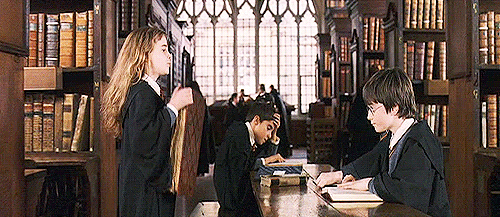
BY HEIGHT
Pros: appealing to the eye, makes your shelf balanced
Cons: nigh on impossible to find books, difficult to organise, don't blame me if you're judged for this
Verdict: don't really get the point of this one

BY PUBLICATION DATE
Pros: original, keeps books from a certain period together, you can tell people that you're a time lord
Pros/cons: visually mismatched
Cons: can be difficult to find books, a pain to organise, pretty useless if most/all of your books are contemporary, a bit sad if we're being honest
Verdict: do people actually do this?

BY GENRE
Pros: a classic for a reason, keeps series together, easy to find books
Pros/cons: visually mismatched
Cons: space-consuming to separate books into genres, can be difficult to classify some books, not very creative
Verdict: is it a library?

NO ORDER
Pros: don't have this unnecessary stress, extremely easy to organise, shows everyone how cool you are
Pros/Cons: visually mismatched, results in some hilarious book combinations
Cons: inordinately difficult to find books, may stress out people with less chill than you*, doesn't keep
Verdict: *deep breaths*
*Like me

BY AUTHOR
Pros: series stay together, easy to find what you're looking for, easy to organise*, can't really go wrong with this one
Pros/Cons: results in some amusing book combinations, visually mismatched
Cons: not
Verdict: I agree with Bond. I like to do some things the old-fashioned way.**
* I find that singing the alphabet song out loud helps
** Just when you were thinking I'd lost the plot entirely with my gif choice
What are your thoughts?*
*I meant on organising your bookshelf, but feel free to let me in on any other interesting musings too.
Published on January 16, 2017 14:21
January 11, 2017
Around the world in books

Everyone knows that when you read, you're transported to somewhere else. So if you feel as though January has lasted for far too long, and you want some exotic escapism without actually having to spend too much money or exert too much effort, here are some
1. Around the World in Eighty Days (Jules Verne, 1873)
One ill-fated evening at the Reform Club, Phileas Fogg rashly bets his companions £20,000 that he can travel around the entire globe in just eighty days. And he is determined not to lose.
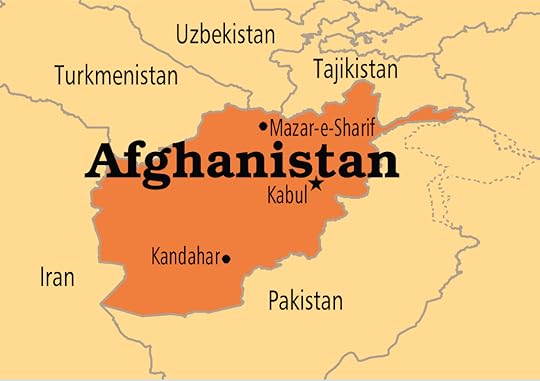
2. Afghanistan: A Thousand Splendid Suns (Khaled Hosseini, 2007)
Born a generation apart and with very different ideas about love and family, Mariam and Laila are two women brought jarringly together by war, by loss, and by fate.
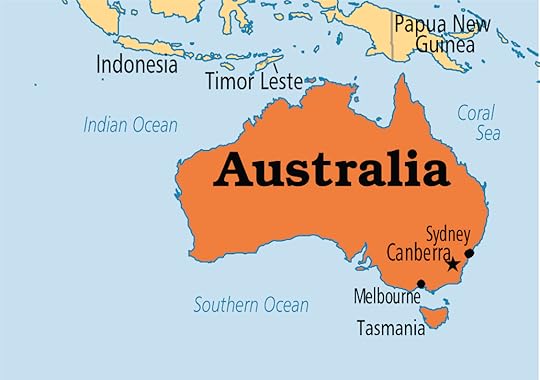
3. Australia: The Bat (Jo Nesbø, 1997)
Harry Hole, a Norwegian wash-up detective whose gift for solving true-crime just won't go away, is sent to Sydney to investigate the murder of Inger Holter, a young Norwegian girl who was working in a bar.
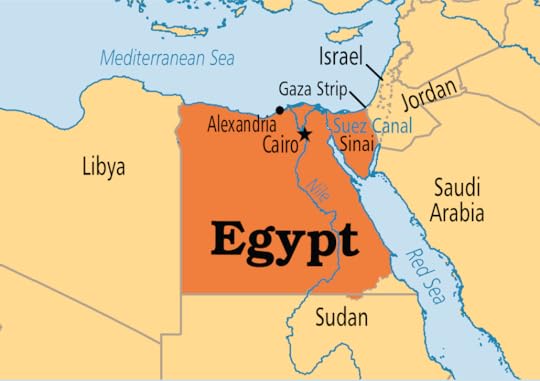
4. Egypt: Death on the Nile (Agatha Christie, 1937)
When a rich heiress, Linnett Rigeway, is murdered on a cruise boat on the Nile following her wedding to Simon Doyle, it is left to Poirot to pick his way through bitter rivalries, dirty schemes, and mysterious thefts to find the true murderer before more people are killed.
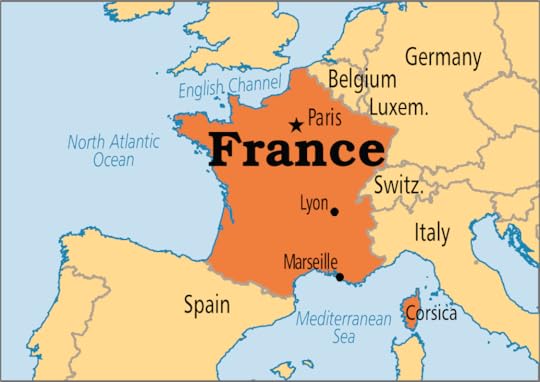
5. France: Total Chaos (Jean-Claude Izzo, 1995)
Caught between pride and crime, racism and fraternity, tragedy and light, messy urbanization and generous beauty, Marseilles for detective Fabio Montale is a Utopia, an ultimate port of call for exiles.
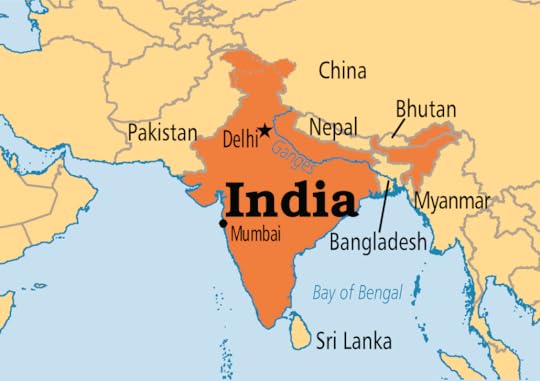
6. India: The God of Small Things (Arundhati Roy, 1997)
In the state of Kerala, on the southernmost tip of India, fraternal twins Esthappen and Rahel fashion a childhood for themselves in the shade of the wreck that is their family.

7. Ireland: Ulysses (James Joyce, 1920)
Reimagining The Odyssey as the travels and trials of an everyday man in Dublin, Joyce weaves strikingly versatile prose styles and varying perspectives to encompass the whole of life within the hours of a single standard day, June 16th, 1904.

8. Lebanon: An Unsafe Haven (Nada Awar Jarrar, 2016)
This is a universal story of people whose lives are tested and transformed, as they wrestle with the anguish of war, displacement and loss, but also with the vital need for hope.
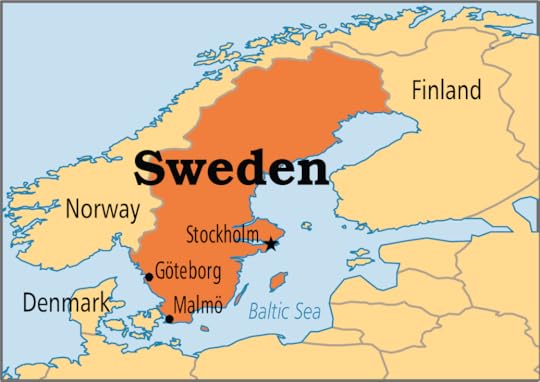
9. Sweden: The Ice Beneath Her (Camilla Grebe, 2016)
As winter descends on Stockholm, police officers Peter Lindgren and Manfred Olsson are investigating the murder of an unidentified young woman found decapitated in the house of Jesper Orre, the controversial, charismatic, and currently missing CEO of Clothes & More.

10. United Kingdom: The Trouble with Goats and Sheep (Joanna Cannon, 2015)
It's the summer of 1976 and, in the cul-de-sac where this beautiful story in set, the heat wave is being blamed for everything. Including the disappearance of Mrs Creasy.
Published on January 11, 2017 14:06
January 3, 2017
Books to read based on your Zodiac sign
While I don't tend to read horoscopes, I find the idea of star signs fascinating, not least because their given personality traits are often scarily accurate. And over Christmas I have fallen in love with Debbie Wiseman's The Musical Zodiac, for which Wiseman (Classic FM's current in-house composer) has composed a piece of classical music for each star sign.* So, whether you religiously read your daily horoscope or whether you don't even know which star sign you are, scroll down and check out these book recommendations, because your future next books are written in the stars.**
*I would highly recommend it.
**And don't take it too personally; after all, you can't help when you were born.

20th January - 18th February
Independent, unconventional, and intellectual; leaders, trend-setters, and humanitarians; and loyal to a fault. Sound like you? Try these on for size:
God Help the Child (Toni Morrison, 2015)
The Heart and the Fist: The Education of a Humanitarian, the Making of a Navy SEAL (Eric Greitens, 2011)
Never Let Me Go (Kazuo Ishiguro, 2005)
On the Road (Jack Kerouac, 1957)

19th February - 20th March
Dreamy, wise, endlessly creative, you want everyone to notice when you walk into a room. Living in two worlds, the real and the mystical, you want to feel connected to others and the world at large. Am I right, or am I right? Try escaping into these:
Dangerous Angels (Francesca Lia Block, 1998)
The Girl with the Dragon Tattoo (Stieg Larsson, 2005)
How to Be Both (Ali Smith, 2014)
The Time Machine (H.G. Wells, 1895)

21st March - 19th April
You're driven and extroverted, spontaneous and bold. You're doers not talkers, and you appreciate people who tell it like it is. You're a tough, independent ram. Sound about right? Then I dare you to give these a spin:
Divergent (Veronica Roth, 2011)
Freedom (Jonathan Franzen, 2010)
Graceling (Kristin Cashore, 2008)
The Great Railway Bazaar (Paul Theroux, 1975)

20th April - 20th May
Grounded, practical, and reliable;stubborn steadfast, and patient; and loyal to your few, close friends. While you appreciate the beauty in all nature and animals, it is the bull who you're most akin to. If you take that as a compliment, which you should, you're sure to appreciate these:
H is for Hawk (Helen Macdonald, 2014)
Sense and Sensibility (Jane Austen, 1811)
To Kill a Mockingbird (Harper Lee, 1960)
Wildlife (Richard Ford, 1990)

21st May - 20th June
Curious, clever, restless, and indecisive, Geminis are not so much two-faced as mercurial. Those lucky enough to be born under this star sign* share a thirst for knowledge, a love of conversation, and like keeping busy, and staying ahead of the crowd. And I reckon they also share a love of these books:
*Yes, I am a Gemini. And yes, I could have been more subtle about it.
All the Light We Cannot See (Anthony Doerr, 2014)
Hyperbole and a Half: Unfortunate Situations, Flawed Coping Mechanisms, Mayhem, and Other Things That Happened (Allie Brosh, 2013)
Miss Peregrine’s Home for Peculiar Children (Ransom Riggs, 2011)
The Sun Also Rises (Ernest Hemingway, 1926)
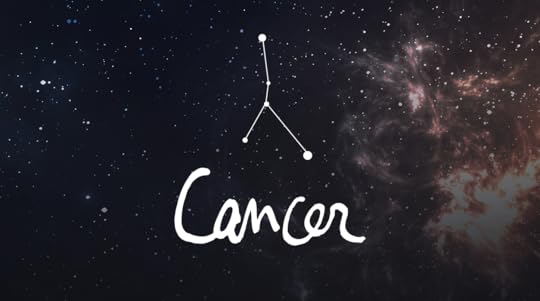
21st June - 22nd July
Protective, family-orientated, and nurturing, don't let anyone tell you that being sensitive is a bad thing. You crave reassurance and intimacy, and your contradictory nature will keep those lucky enough to love you on their toes. Sound like you? Then curl up with one of these books:
A Tree Grows in Brooklyn (Betty Smith, 1943)
The Heart is a Lonely Hunter (Carson McCullers, 1940)
Is Everyone Hanging Out Without Me? (Mindy Kaling, 2011)
Little Women (Louisa May Alcott, 1868)

23rd July - 22nd August
Confident, ambitious, and deeply loyal, you're always the leader and it's not surprising why. Those born under this star sign apparently make the best bartenders and friends, which, let's face it, is really the same thing. Now for some books that are worth your time:
The Complete Short Stories (Ernest Hemingway, 1987)
Gone with the Wind (Margaret Mitchell, 1936)
Inherent Vice (Thomas Pynchon, 2009)
The Spoils of Poynton (Henry James, 1896)

23rd August - 22nd September
Creative, meticulous, and intuitive, you exist mostly in your own mind and give nothing away. You don't see yourself as the protagonist, but then where would Harry be without Hermione, whose Virgo-ness* made the literary world fall in love with her, and saved Harry's and Ron's lives several times over? These books are all yours:
*Yes, thank you, I am aware that's not a word.
The Curious Incident of the Dog in the Night-Time (Mark Haddon, 2003)
The Diary of a Young Girl (Anne Frank, 1947)
The Inverted World (Christopher Priest, 1974)
Harry Potter and the Philosopher's Stone (J.K. Rowling, 1997)

23rd September - 22nd October
You're the archetypal* balanced person, as the name implies. You're thoughtful, independent, charming, social, and diplomatic. Venus is your ruling planet, which makes you deeply romantic and sensual by nature. And, apparently, you say "yes" a lot. I know you're going to say "yes" to these books:
*I love that word.
A Heartbreaking Work of Staggering Genius (Dave Eggers, 2000)
Lafayette in the Somewhat United States (Sarah Vowell, 2015)
On Beauty (Zadie Smith, 2005)
Romeo and Juliet (William Shakespeare, 1597)

23rd October - 21st November
Passionate doesn't even begin to cover it. Extreme, intense, driven, fiercely loyal, observant, and resourceful, you're wise beyond your years, and you love to win. Ready to admit to this? Then you'll devour these books:
Antigone (Sophocles, c.441BC)
The Cuckoo's Calling (Robert Galbraith, 2013)
Gone Girl (Gillian Flynn, 2012)
The Lion, the Witch, and the Wardrobe (C.S. Lewis, 1950)

22nd November - 21st December
Optimistic, curious, stubborn, and ambitious, you see every day as a new day, you have a wicked sense of humour, and you're often accused of being tactless (*shocked expression*). Here are some books which are as good company as you are:
Candide (Voltaire, 1759)
Good Omens: The Nice and Accurate Prophecies of Agnes Nutter, Witch (Terry Pratchett and Neil Gaiman, 1990)
The High Mountains of Portugal (Yann Martel, 2016)
Interview with the Vampire (Anne Rice, 1976)
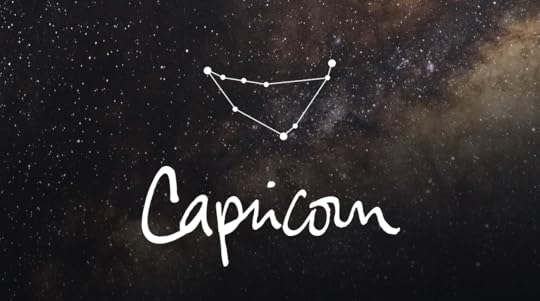
22nd December - 19th January
Gentle, quiet, patient, self-reliant, disciplined, and traditional, you worry about being admired by your friends and family, and combine innovation with hard work to become unstoppable. If this sounds like you, then chance are you're a Capricorn. Here are some books to read in your down time:
The Goldfinch (Donna Tartt, 2013)
Jane Eyre (Charlotte Brontë, 1847)
The Perks Of Being A Wallflower (Stephen Chbosky, 1999)
The Queen of the Night (Alexander Chee, 2016)
What star sign are you? And what do you think of these book recommendations? Do you read horoscopes? Did you know what your star sign was before reading this post? Have you heard The Musical Zodiac yet? Let me know either via Goodreads or Twitter!
*I would highly recommend it.
**And don't take it too personally; after all, you can't help when you were born.

20th January - 18th February
Independent, unconventional, and intellectual; leaders, trend-setters, and humanitarians; and loyal to a fault. Sound like you? Try these on for size:
God Help the Child (Toni Morrison, 2015)
The Heart and the Fist: The Education of a Humanitarian, the Making of a Navy SEAL (Eric Greitens, 2011)
Never Let Me Go (Kazuo Ishiguro, 2005)
On the Road (Jack Kerouac, 1957)

19th February - 20th March
Dreamy, wise, endlessly creative, you want everyone to notice when you walk into a room. Living in two worlds, the real and the mystical, you want to feel connected to others and the world at large. Am I right, or am I right? Try escaping into these:
Dangerous Angels (Francesca Lia Block, 1998)
The Girl with the Dragon Tattoo (Stieg Larsson, 2005)
How to Be Both (Ali Smith, 2014)
The Time Machine (H.G. Wells, 1895)

21st March - 19th April
You're driven and extroverted, spontaneous and bold. You're doers not talkers, and you appreciate people who tell it like it is. You're a tough, independent ram. Sound about right? Then I dare you to give these a spin:
Divergent (Veronica Roth, 2011)
Freedom (Jonathan Franzen, 2010)
Graceling (Kristin Cashore, 2008)
The Great Railway Bazaar (Paul Theroux, 1975)

20th April - 20th May
Grounded, practical, and reliable;
H is for Hawk (Helen Macdonald, 2014)
Sense and Sensibility (Jane Austen, 1811)
To Kill a Mockingbird (Harper Lee, 1960)
Wildlife (Richard Ford, 1990)

21st May - 20th June
Curious, clever, restless, and indecisive, Geminis are not so much two-faced as mercurial. Those lucky enough to be born under this star sign* share a thirst for knowledge, a love of conversation, and like keeping busy, and staying ahead of the crowd. And I reckon they also share a love of these books:
*Yes, I am a Gemini. And yes, I could have been more subtle about it.
All the Light We Cannot See (Anthony Doerr, 2014)
Hyperbole and a Half: Unfortunate Situations, Flawed Coping Mechanisms, Mayhem, and Other Things That Happened (Allie Brosh, 2013)
Miss Peregrine’s Home for Peculiar Children (Ransom Riggs, 2011)
The Sun Also Rises (Ernest Hemingway, 1926)

21st June - 22nd July
Protective, family-orientated, and nurturing, don't let anyone tell you that being sensitive is a bad thing. You crave reassurance and intimacy, and your contradictory nature will keep those lucky enough to love you on their toes. Sound like you? Then curl up with one of these books:
A Tree Grows in Brooklyn (Betty Smith, 1943)
The Heart is a Lonely Hunter (Carson McCullers, 1940)
Is Everyone Hanging Out Without Me? (Mindy Kaling, 2011)
Little Women (Louisa May Alcott, 1868)

23rd July - 22nd August
Confident, ambitious, and deeply loyal, you're always the leader and it's not surprising why. Those born under this star sign apparently make the best bartenders and friends, which, let's face it, is really the same thing. Now for some books that are worth your time:
The Complete Short Stories (Ernest Hemingway, 1987)
Gone with the Wind (Margaret Mitchell, 1936)
Inherent Vice (Thomas Pynchon, 2009)
The Spoils of Poynton (Henry James, 1896)

23rd August - 22nd September
Creative, meticulous, and intuitive, you exist mostly in your own mind and give nothing away. You don't see yourself as the protagonist, but then where would Harry be without Hermione, whose Virgo-ness* made the literary world fall in love with her, and saved Harry's and Ron's lives several times over? These books are all yours:
*Yes, thank you, I am aware that's not a word.
The Curious Incident of the Dog in the Night-Time (Mark Haddon, 2003)
The Diary of a Young Girl (Anne Frank, 1947)
The Inverted World (Christopher Priest, 1974)
Harry Potter and the Philosopher's Stone (J.K. Rowling, 1997)

23rd September - 22nd October
You're the archetypal* balanced person, as the name implies. You're thoughtful, independent, charming, social, and diplomatic. Venus is your ruling planet, which makes you deeply romantic and sensual by nature. And, apparently, you say "yes" a lot. I know you're going to say "yes" to these books:
*I love that word.
A Heartbreaking Work of Staggering Genius (Dave Eggers, 2000)
Lafayette in the Somewhat United States (Sarah Vowell, 2015)
On Beauty (Zadie Smith, 2005)
Romeo and Juliet (William Shakespeare, 1597)

23rd October - 21st November
Passionate doesn't even begin to cover it. Extreme, intense, driven, fiercely loyal, observant, and resourceful, you're wise beyond your years, and you love to win. Ready to admit to this? Then you'll devour these books:
Antigone (Sophocles, c.441BC)
The Cuckoo's Calling (Robert Galbraith, 2013)
Gone Girl (Gillian Flynn, 2012)
The Lion, the Witch, and the Wardrobe (C.S. Lewis, 1950)

22nd November - 21st December
Optimistic, curious, stubborn, and ambitious, you see every day as a new day, you have a wicked sense of humour, and you're often accused of being tactless (*shocked expression*). Here are some books which are as good company as you are:
Candide (Voltaire, 1759)
Good Omens: The Nice and Accurate Prophecies of Agnes Nutter, Witch (Terry Pratchett and Neil Gaiman, 1990)
The High Mountains of Portugal (Yann Martel, 2016)
Interview with the Vampire (Anne Rice, 1976)

22nd December - 19th January
Gentle, quiet, patient, self-reliant, disciplined, and traditional, you worry about being admired by your friends and family, and combine innovation with hard work to become unstoppable. If this sounds like you, then chance are you're a Capricorn. Here are some books to read in your down time:
The Goldfinch (Donna Tartt, 2013)
Jane Eyre (Charlotte Brontë, 1847)
The Perks Of Being A Wallflower (Stephen Chbosky, 1999)
The Queen of the Night (Alexander Chee, 2016)
What star sign are you? And what do you think of these book recommendations? Do you read horoscopes? Did you know what your star sign was before reading this post? Have you heard The Musical Zodiac yet? Let me know either via Goodreads or Twitter!
Published on January 03, 2017 04:16
December 23, 2016
2016 in books
2016 is almost over, and while most people are looking back over how they lived their life this past year, we bibliophiles are looking back over what we read this past year...
BOOK COVER OF THE YEAR

Third place: C. S. Lewis - A Life: Eccentric Genius, Reluctant Prophet (Alister E. McGrath, 2013)
Runner-up: The Trouble with Goats and Sheep (Joanna Cannon, 2016)
Winner: The Countenance Divine (Michael Hughes, 2016)
BOOK-THAT-MADE-ME CRY OF THE YEAR
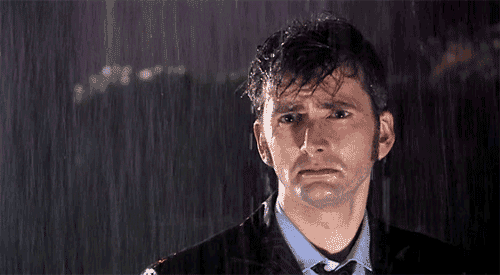
Runner-up: Shoes for Anthony (Emma Kennedy, 2015)
Winner: Inside the O'Briens (Lisa Genova, 2015)
FIRST-BOOK-I'VE-READ-BY-THE-AUTHOR OF THE YEAR

Winner: The Children Act (Ian McEwan, 2014)
WONDERFULLY-WEIRD-BOOK OF THE YEAR

Third place: Purity (Jonathan Franzen, 2015)
Runner-up: The Comforters (Muriel Spark, 1957)
Winner: Surfacing (Margaret Atwood, 1972)
PLOT TWIST OF THE YEAR

Third place: Gone Girl (Gillian Flynn, 2012)
Runner-up: Before I Go to Sleep (S.J. Watson, 2011)
Winner: The Ice Beneath Her (Camilla Grebe, 2016)
NON-FICTION BOOK OF THE YEAR

Fourth place: Sapiens: A Brief History of Humankind (Yuval Noah Harari, 2011)
Third place: The Surgeon of Crowthorne: a tale of murder, madness & the love of words (Simon Winchester, 1998)
Runner-up: A History of Britain in 21 Women (Jenni Murray, 2016)
Winner: Why Your Five Year Old Could Not Have Done That: Modern Art Explained (Susie Hodge, 2012)
CLASSIC OF THE YEAR

Runner-up: Metamorphoses (Ovid trans. Arthur Golding, 1567)
Winner: Animal Farm (George Orwell, 1945)
BOOK OF THE YEAR

Winner: The Last Days of Night (Graham Moore, 2016)
BOOK COVER OF THE YEAR

Third place: C. S. Lewis - A Life: Eccentric Genius, Reluctant Prophet (Alister E. McGrath, 2013)
Runner-up: The Trouble with Goats and Sheep (Joanna Cannon, 2016)
Winner: The Countenance Divine (Michael Hughes, 2016)
BOOK-THAT-MADE-ME CRY OF THE YEAR

Runner-up: Shoes for Anthony (Emma Kennedy, 2015)
Winner: Inside the O'Briens (Lisa Genova, 2015)
FIRST-BOOK-I'VE-READ-BY-THE-AUTHOR OF THE YEAR

Winner: The Children Act (Ian McEwan, 2014)
WONDERFULLY-WEIRD-BOOK OF THE YEAR

Third place: Purity (Jonathan Franzen, 2015)
Runner-up: The Comforters (Muriel Spark, 1957)
Winner: Surfacing (Margaret Atwood, 1972)
PLOT TWIST OF THE YEAR

Third place: Gone Girl (Gillian Flynn, 2012)
Runner-up: Before I Go to Sleep (S.J. Watson, 2011)
Winner: The Ice Beneath Her (Camilla Grebe, 2016)
NON-FICTION BOOK OF THE YEAR

Fourth place: Sapiens: A Brief History of Humankind (Yuval Noah Harari, 2011)
Third place: The Surgeon of Crowthorne: a tale of murder, madness & the love of words (Simon Winchester, 1998)
Runner-up: A History of Britain in 21 Women (Jenni Murray, 2016)
Winner: Why Your Five Year Old Could Not Have Done That: Modern Art Explained (Susie Hodge, 2012)
CLASSIC OF THE YEAR

Runner-up: Metamorphoses (Ovid trans. Arthur Golding, 1567)
Winner: Animal Farm (George Orwell, 1945)
BOOK OF THE YEAR

Winner: The Last Days of Night (Graham Moore, 2016)
Published on December 23, 2016 04:39
December 12, 2016
Books to read this Christmas
"One can never have enough socks,' said Dumbledore. 'Another Christmas has come and gone and I didn't get a single pair. People will insist on giving me books." ~ J.K. Rowling

With Christmas around the corner, I thought that I'd write my latest blog post on book recommendations for the festive period. Let me know what you think of my choices, either via Goodreads or Twitter!
The classic shelf:

1. A Christmas Carol (Charles Dickens, 1843)
Everyone knows the story. Journeying with a series of spectral visitors through Christmases past, present, and future, Ebenezer Scrooge is ultimately transformed from an arrogant, obstinate, and insensitive miser to a generous, warm-hearted, and caring human being.
2. Hercule Poirot's Christmas (Agatha Christie, 1938)
A fortune in uncut diamonds, hidden by an eccentric old man. A woman's love, too freely given. A business empire built on ruthlessness. Each of these may have been a motive for the brutal slaying of wealthy old Simeon Lee. A case where everyone wanted to see the victim dead calls for Hercule Poirot and his "little grey cells".
3. The Lion, the Witch, and the Wardrobe (C.S. Lewis, 1950)
"They say Aslan is on the move. Perhaps he has already landed," whispered the Beaver. Edmund felt a sensation of mysterious horror. Peter felt brave and adventurous. Susan felt as if some delightful strain of music had just floated by. And Lucy got that feeling when you realize it's the beginning of summer. So, deep in the bewitched land of Narnia, the adventure begins.
4. The Snow Queen (Hans Christian Andersen, 1844)
In one of my all-time favourite stories, Kay and Gerda share a strong emotional bond, which is damaged by Kay's infection with the slivers from the shattered evil mirror. His eye and his heart are pricked, and it changes the way he sees the world, and makes his loving heart grow cold towards Gerda. But Gerda doesn't give up on him. When the Snow Queen steals away Kay, she goes searching for him, going on quite an odyssey and meeting some very unusual people along the way.
The alternative shelf:

1. Festive in Death (J.D. Robb, 2014)
Personal trainer Trey Ziegler was in peak physical condition. If you didn't count the kitchen knife in his well-toned chest. Lieutenant Eve Dallas soon discovers a lineup of women who'd been loved and left by Ziegler. But her ever-increasing list of suspects isn't the only list causing Dallas problems, as she also tries to juggle her Christmas shopping list, and the guest list for her and her billionaire husband's upcoming Christmas party.
2. Harry Potter and the Goblet of Fire (J.K. Rowling, 2000)
When Harry Potter starts his fourth year at Hogwarts, halfway through his training as a wizard and his coming of age, his mind is focused on the International Quidditch Cup. But Hogwarts is hosting the infamous Triwizard Tournament, a dangerous competition involving two other rival schools of magic. One student from each school is chosen by the Goblet of Fire. But so is Harry.
3. Light on Snow (Anita Shreve, 2004)
When twelve-year-old Nicky, and her widowed dad Robert, find a baby in the snow, their secluded life out in the New Hampshire's woods are suddenly not so simple anymore. This book, which made me fall in love with Anita Shreve's writing, is written from the viewpoint of thirty-year-old Nicky, recalling that fateful December day.
4. A Wedding in December (Anita Shreve, 2005)
At an inn in the Berkshire Mountains, seven former schoolmates gather to celebrate a wedding. But their reunion becomes the occasion of astonishing revelations, as the friends collectively recall a long-ago night that indelibly marked each of their lives.
From my to-read shelf:

1. The Snowman (Jo Nesbø, 2007)
Oslo in November. The first snow of the season has fallen. A boy named Jonas wakes in the night to find his mother gone. Out his window, in the cold moonlight, he sees the snowman that inexplicably appeared in the yard earlier in the day. Around its neck is his mother’s pink scarf.
2. The Dark Winter (David Mark, 2012)
When three seemingly unconnected people are brutally murdered in the weeks before Christmas, the police must work quickly to stop more deaths. It is only DS Aector McAvoy, a man with a troubled past and an unwavering belief in justice, who can see the connection between the victims. A killer is playing God, and McAvoy must find a way to stop the deadly game.

With Christmas around the corner, I thought that I'd write my latest blog post on book recommendations for the festive period. Let me know what you think of my choices, either via Goodreads or Twitter!
The classic shelf:

1. A Christmas Carol (Charles Dickens, 1843)
Everyone knows the story. Journeying with a series of spectral visitors through Christmases past, present, and future, Ebenezer Scrooge is ultimately transformed from an arrogant, obstinate, and insensitive miser to a generous, warm-hearted, and caring human being.
2. Hercule Poirot's Christmas (Agatha Christie, 1938)
A fortune in uncut diamonds, hidden by an eccentric old man. A woman's love, too freely given. A business empire built on ruthlessness. Each of these may have been a motive for the brutal slaying of wealthy old Simeon Lee. A case where everyone wanted to see the victim dead calls for Hercule Poirot and his "little grey cells".
3. The Lion, the Witch, and the Wardrobe (C.S. Lewis, 1950)
"They say Aslan is on the move. Perhaps he has already landed," whispered the Beaver. Edmund felt a sensation of mysterious horror. Peter felt brave and adventurous. Susan felt as if some delightful strain of music had just floated by. And Lucy got that feeling when you realize it's the beginning of summer. So, deep in the bewitched land of Narnia, the adventure begins.
4. The Snow Queen (Hans Christian Andersen, 1844)
In one of my all-time favourite stories, Kay and Gerda share a strong emotional bond, which is damaged by Kay's infection with the slivers from the shattered evil mirror. His eye and his heart are pricked, and it changes the way he sees the world, and makes his loving heart grow cold towards Gerda. But Gerda doesn't give up on him. When the Snow Queen steals away Kay, she goes searching for him, going on quite an odyssey and meeting some very unusual people along the way.
The alternative shelf:

1. Festive in Death (J.D. Robb, 2014)
Personal trainer Trey Ziegler was in peak physical condition. If you didn't count the kitchen knife in his well-toned chest. Lieutenant Eve Dallas soon discovers a lineup of women who'd been loved and left by Ziegler. But her ever-increasing list of suspects isn't the only list causing Dallas problems, as she also tries to juggle her Christmas shopping list, and the guest list for her and her billionaire husband's upcoming Christmas party.
2. Harry Potter and the Goblet of Fire (J.K. Rowling, 2000)
When Harry Potter starts his fourth year at Hogwarts, halfway through his training as a wizard and his coming of age, his mind is focused on the International Quidditch Cup. But Hogwarts is hosting the infamous Triwizard Tournament, a dangerous competition involving two other rival schools of magic. One student from each school is chosen by the Goblet of Fire. But so is Harry.
3. Light on Snow (Anita Shreve, 2004)
When twelve-year-old Nicky, and her widowed dad Robert, find a baby in the snow, their secluded life out in the New Hampshire's woods are suddenly not so simple anymore. This book, which made me fall in love with Anita Shreve's writing, is written from the viewpoint of thirty-year-old Nicky, recalling that fateful December day.
4. A Wedding in December (Anita Shreve, 2005)
At an inn in the Berkshire Mountains, seven former schoolmates gather to celebrate a wedding. But their reunion becomes the occasion of astonishing revelations, as the friends collectively recall a long-ago night that indelibly marked each of their lives.
From my to-read shelf:

1. The Snowman (Jo Nesbø, 2007)
Oslo in November. The first snow of the season has fallen. A boy named Jonas wakes in the night to find his mother gone. Out his window, in the cold moonlight, he sees the snowman that inexplicably appeared in the yard earlier in the day. Around its neck is his mother’s pink scarf.
2. The Dark Winter (David Mark, 2012)
When three seemingly unconnected people are brutally murdered in the weeks before Christmas, the police must work quickly to stop more deaths. It is only DS Aector McAvoy, a man with a troubled past and an unwavering belief in justice, who can see the connection between the victims. A killer is playing God, and McAvoy must find a way to stop the deadly game.
Published on December 12, 2016 12:02
December 5, 2016
Attempting the impossible
I was at a dinner party recently, and when the person I was sitting next to found out that I'm reading Classics and English at university, he asked what my favourite Shakespeare play was.

And it made me think about all those questions which, as an ardent book lover, I always get asked, and which are impossible to answer. So I thought it might be fun to try to answer some of them (a decision I may live to regret). Here goes:
1. What do you like to read?

Ok, so the short answer is everything.
My go-to genre is crime fiction (murder mysteries, detective fiction, call it what you will). My least favourite genres are YA, fantasy, sci-fi, and romance, but I have read and enjoyed books in these genres and hope to continue to. Would you understand what I meant if I said that I struggled the most with 'pure' YA, fantasy, sci-fi, and romance? I also don't tend to read contemporary biographies or autobiographies (but am willing to make exceptions). Beyond that, I basically do read everything. And I am always trying to push myself out of my reading comfort zone.
2. How do you find time to read?

I think this is the question that I get asked the most. And also the one that annoys me the most.
I make time to read. My main reading time is in bed, before I go to sleep. And any reading I can get done during the day is a guilty pleasure. But what the people who I talk to don't understand is that reading is my main way of relaxing, and one of the primary uses of my leisure time. So when they tell me that they don't have time to read, but have just watched the entire first season of *insert Netflix series here* in one day, I merely have to shrug à la Dumbledore in this gif.
3. Why do you read?

Do you hear me asking you why you breathe?
As cliched as it sounds, I've just always loved reading. I could read before I started school, reading stories to the other children at my playschool group and showing them the pictures (as I had obviously seen adults do), and no-one I meet who knew me as a child is surprised when they find out that I am pursuing my passion for literature at university. And while I can give all the usual answers to this question, it's not something I can really explain.
4. What's your favourite book?

Picking your favourite book is like picking your favourite child. It's just not possible (or appropriate).
My favourites (plural) would probably be: The Picture of Dorian Gray, Oscar Wilde (1890); The Moonstone, Wilkie Collins (1868); and And Then There Were None, Agatha Christie (1939). But it breaks my heart to think of all the books I haven't mentioned here.
What are your thoughts? Are you constantly being asked questions like these? And do you have any answers for them? Comment below, or get in touch either via Goodreads or Twitter!

And it made me think about all those questions which, as an ardent book lover, I always get asked, and which are impossible to answer. So I thought it might be fun to try to answer some of them (a decision I may live to regret). Here goes:
1. What do you like to read?

Ok, so the short answer is everything.
My go-to genre is crime fiction (murder mysteries, detective fiction, call it what you will). My least favourite genres are YA, fantasy, sci-fi, and romance, but I have read and enjoyed books in these genres and hope to continue to. Would you understand what I meant if I said that I struggled the most with 'pure' YA, fantasy, sci-fi, and romance? I also don't tend to read contemporary biographies or autobiographies (but am willing to make exceptions). Beyond that, I basically do read everything. And I am always trying to push myself out of my reading comfort zone.
2. How do you find time to read?

I think this is the question that I get asked the most. And also the one that annoys me the most.
I make time to read. My main reading time is in bed, before I go to sleep. And any reading I can get done during the day is a guilty pleasure. But what the people who I talk to don't understand is that reading is my main way of relaxing, and one of the primary uses of my leisure time. So when they tell me that they don't have time to read, but have just watched the entire first season of *insert Netflix series here* in one day, I merely have to shrug à la Dumbledore in this gif.
3. Why do you read?

Do you hear me asking you why you breathe?
As cliched as it sounds, I've just always loved reading. I could read before I started school, reading stories to the other children at my playschool group and showing them the pictures (as I had obviously seen adults do), and no-one I meet who knew me as a child is surprised when they find out that I am pursuing my passion for literature at university. And while I can give all the usual answers to this question, it's not something I can really explain.
4. What's your favourite book?

Picking your favourite book is like picking your favourite child. It's just not possible (or appropriate).
My favourites (plural) would probably be: The Picture of Dorian Gray, Oscar Wilde (1890); The Moonstone, Wilkie Collins (1868); and And Then There Were None, Agatha Christie (1939). But it breaks my heart to think of all the books I haven't mentioned here.
What are your thoughts? Are you constantly being asked questions like these? And do you have any answers for them? Comment below, or get in touch either via Goodreads or Twitter!
Published on December 05, 2016 14:58
November 28, 2016
What to read: Ian McEwan

What to read if you love Ian McEwan.
1.
 Jonathan Franzen
Jonathan FranzenI love the way that McEwan pushes ideas and thoughts almost to the point where the reader becomes uncomfortable. If you agree with me, then Franzen is the man for you.
Purity, which focuses on Purity "Pip" Tyler, a cynical and untrusting young woman who knows nothing about her parents except that her mother's real name isn't true, and who is saddled with student debt and stuck in a dead-end job, is an exploration of innocence, secrets, and the cost of freedom. And, just to warn you, this book is full of messed-up characters.
2.
 Margaret Atwood
Margaret AtwoodIf what you enjoy most about McEwan is his exploration of powerful themes, which blows you away and then leaves you wondering what on earth you've just read, I'd recommend Atwood.
This novella is told from the perspective of an unnamed protagonist who returns to the remote island of her childhood, with her lover and two friends, to investigate the disappearance of her father. In Surfacing, Atwood explores personal, national, and gendered identity; the pressure of society; grief and loss; isolation and separation; and memory and language, and she does so in exquisite prose.
3.
 Graham Moore
Graham MooreIf what actually draws you to McEwan is his meticulous research and knowledgeable insight, delivered in a page-turning piece of fiction, try giving Moore a go.
In the perfect balance between fact and fiction, The Last Days of Night tells the story of Paul Westinghouse, a 26 year-old lawyer. Edison has won the race to the patent office for the lightbulb, and is now suing his only remaining rival, George Westinghouse, Paul's first and only client, for one billion dollars. It only takes that first meeting with Edison for Paul to realise that he is out of his depth. However, there is one thing which Paul shares with Edison: a compulsion to win at all costs.
4.
 Kazuo Ishiguro
Kazuo IshiguroIf you most enjoy McEwan's complex, not necessarily likeable, characters, and his penchant for endings which are simultaneously solved and unsolved, I'd recommend Ishiguro.
Christopher Banks, the protagonist of When We Were Orphans, has dedicated his life to detective work but behind his successes lies one unsolved mystery: the disappearance of his parents when he was a small boy living in the International Settlement in Shanghai. 'When we were orphans' moves between England and China in the inter-war period, encompassing the turbulence and political anxieties of the time, and the crumbling certainties of a Britain deeply involved in the opium trade in the East.
5.
 Philip Larkin
Philip LarkinIf you read McEwan for his reflective exploration of everyday, but perhaps somewhat uncomfortable, issues, with a touch of humour, you won't be disappointed by Larkin.
McEwan cited Larkin as one of the influences behind his own work, saying that "His poems are part of my mental furniture."
Who would you add to (or remove from) this list? And what is it that you love about Ian McEwan's novels?
Published on November 28, 2016 01:22
November 21, 2016
Is everyone here very stoned?

This blog post is a shout-out to every time you've read a book and completely disagreed with what everyone else seems to think about it, usually for quite inexplicable reasons. But then, wouldn't the world be a boring place if everyone had the same tastes?
BOOKS EVERYONE ELSE LOVED

1. Case Histories (Kate Atkinson, 2004)
The first in the Jackson Brodie series sees the private eye investigating three cases simultaneously. Case one: a little girl goes missing in the night. Case two: a beautiful young office worker falls victim to a maniac's apparently random attack. Case three: a new mother finds herself trapped in a hell of her own making - with a very needy baby and a very demanding husband - until a fit of rage creates a grisly, bloody escape.
2. The Woman in Black (Susan Hill, 1983)
Set on the obligatory English moor, on an isolated causeway, the story has as its hero Arthur Kipps, an up-and-coming young solicitor who has come north from London to attend the funeral and settle the affairs of Mrs. Alice Drablow of Eel Marsh House. The routine formalities he anticipates give way to a tumble of events and secrets more sinister and terrifying than any nightmare: the rocking chair in the deserted nursery, the eerie sound of a pony and trap, a child's scream in the fog, and most dreadfully - and for Kipps most tragically - The Woman In Black.
3. A Christmas Carol (Charles Dickens, 1843)
We all know the story. Ebenezer Scrooge is an old miser who hates Christmas. He's visited by the ghost of his late business partner Jacob Marley, who warns Scrooge that he will be haunted by three spirits representing three pivotal points in his life. By reliving the past, observing the present, and fearing the future, Scrooge learns to mend his ways and opens his heart to charity and compassion.
4. Of Mice and Men (John Steinbeck, 1937)
Drifters in search of work, George and his simple-minded friend Lennie have nothing in the world except each other and a dream: a dream that one day they will have some land of their own. Eventually they find work on a ranch in California’s Salinas Valley, but their hopes are doomed as Lennie, struggling against extreme cruelty, misunderstanding and feelings of jealousy, becomes a victim of his own strength.
BOOKS EVERYONE ELSE HATED

1. Nine Lives (Frank Lean, 1995)
Christmas morning greets Dave Cunane sourly. Manchester's most intrepid private eye is in jail. Often known to take the law into hi own hands, he now finds himself in the hands of the law. Framed and arrested for a cold-blooded murder, Cunane turns to the ever-tricky Delise, his part-time lover and full-time assistant, to save his neck and find out who the real killer is. But as the clock ticks away and the corpses pile up, Dave realises that more than one party want him out of the way, for good.
2. A Wedding in December (Anita Shreve, 2005)
At an inn in the Berkshire Mountains, seven former schoolmates gather to celebrate a wedding; a reunion that becomes the occasion of astonishing revelations as the friends collectively recall a long-ago night that indelibly marked each of their lives.
3. Amsterdam (Ian McEwan, 1998)
'Amsterdam' tells the story of Clive Linley, eminent composer, currently working on The Milennial Symphony, and Vernon Halliday, editor of the broadsheet 'The judge'. These men are connected by their friendship, and their love for one woman: Molly Lane. The novel opens with Molly's funeral, which sets off a chain of events, having far-reaching conseqences for both Clive and Vernon, as well as for another of Molly's former lovers, foreign secretary Julian Garmony.
4. The Small Hand: A Ghost Story (Susan Hill, 2010)
Returning home from a client visit late one evening, Adam Snow takes a wrong turn and stumbles across the derelict old White House. Compelled by curiousity he decides to enter, only to be repelled when he feels the unmistakeable sensation of a small hand creeping onto his own. This is just the beginning of a series of odd experiences.
Published on November 21, 2016 01:24
November 14, 2016
Books about books

What's even better than books? Books about books.
Here's some to get you started:
Books about book clubs:
1. Lowcountry Book Club (Susan M. Boyer, 2016)
Liz Talbot and her husband Nate Andrews are private eyes, hired by Charleston's most prestigious law firm to prove that Clint Gerhardt did not push his wife out of a second-floor window. Their search for Shelby's real killer leads them to the local homeless shelter, where Shelby volunteered, to the Market Pavilion Hotel, where Clint tracked her to in the time before her death, and to the one-hundred-year-old book club, of which Shelby was a controversial president.
2. The Agatha Christie Book Club (C.A. Larmer, 2012)
Bored with her stodgy old book club, Alicia Finlay decides to start a new one - dedicated to her favourite crime writer Agatha Christie. But when, as the book club are happily sipping cups of Darjeeling and dissecting Evil Under the Sun, one of the members, Barbara, disappears and then her husband, who seemed oddly unperturbed, turns up dead, they decide to follow Miss Marple's lead and investigate themselves.
Books about libraries:
The Body in the Library (Agatha Christie, 1942)
The people of St. Mary Mead get hold of some juicy gossip when a body of an unknown young blonde woman is found in the library of the respectable Bantrys. As the suspicion falls on Colonel Bantry, Mrs. Bantry calls on Miss Marple to help solve this perplexing case.
Literary Murder (Batya Gur, 1989)
On a short holiday with his son, Superintendent Michael Ohajon witnesses the body of a dead scuba diver being pulled out of the sea. The diver turns out to be a lecturer at the Hebrew Literature Institute at Hebrew University in Jerusalem - Ido Duda'i. Back home in Jerusalem, Ohajon helps with the investigation in the lecturer's death, when a second murder victim is found: the head of the institute, Sha'ul Tirosh, a world-reknowned scholar and poet. While investigating the two murders, Ohajon, himself a graduate of the Hebrew University and set apart from the other officers by his literary interests, returns to the academic world.
Books about book shops:
How to Find Love in a Bookshop (Veronica Henry, 2016)
Emilia has just returned to her idyllic Cotswold hometown to rescue the family business. Nightingale Books is a dream come true for book-lovers, but the best stories aren't just within the pages of the books she sells - Emilia's customers have their own tales to tell.
The Storied Life of A.J. Fikry (Gabrielle Zevin, 2014)
On the faded Island Books sign hanging over the porch of the Victorian cottage is the motto "No Man Is an Island; Every Book Is a World." A. J. Fikry, the irascible owner, is about to discover just what that truly means.
Books about authors:
The Door (Magda Szabó, 1987)
A busy young writer struggling to cope with domestic chores, hires a housekeeper recommended by a friend. The housekeeper's reputation is one built on dependable efficiency, though she is something of an oddity. Stubborn, foul-mouthed and with a flagrant disregard for her employer's opinions she may even be crazy. She allows no-one to set foot inside her house; she masks herself with a veil and is equally guarded about her personal life. And yet Emerence is revered as much as she is feared.
Atonement (Ian McEwan, 2001)
On a hot summer day in 1934, thirteen-year-old Briony Tallis witnesses a moment’s flirtation between her older sister, Cecilia, and Robbie Turner, the son of a servant and Cecilia’s childhood friend. But Briony’s incomplete grasp of adult motives—together with her precocious literary gifts—brings about a crime that will change all their lives.
Meta-literary books:
The Comforters (Muriel Spark, 1957)
Caroline Rose is plagued by the tapping of typewriter keys and the strange, detached narration of her every thought and action. Caroline has an unusual problem - she realises she is in a novel. Her fellow characters also seem deluded: Laurence, her former lover, finds diamonds in a loaf of bread - has his elderly grandmother hidden them there? And Baron Stock, her bookseller friend, believes he is on the trail of England's leading Satanist.
The Roman Actor (Philip Massinger, 1626)
When the Emperor Domitian returns triumphantly to Rome, he returns to a new wife, Domitia, whose ex-husband was forced to divorce her by a freed slave of Domitian, Parthenius, because Domitian wanted her for himself. His return also breaks up the trial of Paris, an actor defending himself and his profession eloquently in the Senate against claims of inciting and encouraging immorality. But when Parthenius and Paris stage a play to show Parthenius' father, Philargus, an old rich miser, to change his ways, not only do they fail, but Paris also catches the eye of Domitian's new wife, Domitia. Through a series of plays-within-plays, The Roman Actor explores the question of tyranny and of the impact of fiction.
And of course:
The Book Thief (Markus Zusak, 2005)
Set during World War II in Germany, this is the story of Liesel Meminger, a foster girl living outside of Munich. Liesel scratches out a meager existence for herself by stealing when she encounters something she can’t resist: books. With the help of her accordion-playing foster father, she learns to read and shares her stolen books with her neighbours during bombing raids as well as with the Jewish man hidden in her basement before he is marched to Dachau.
What would you add to, or remove from, this list of books about books?
Published on November 14, 2016 06:32



